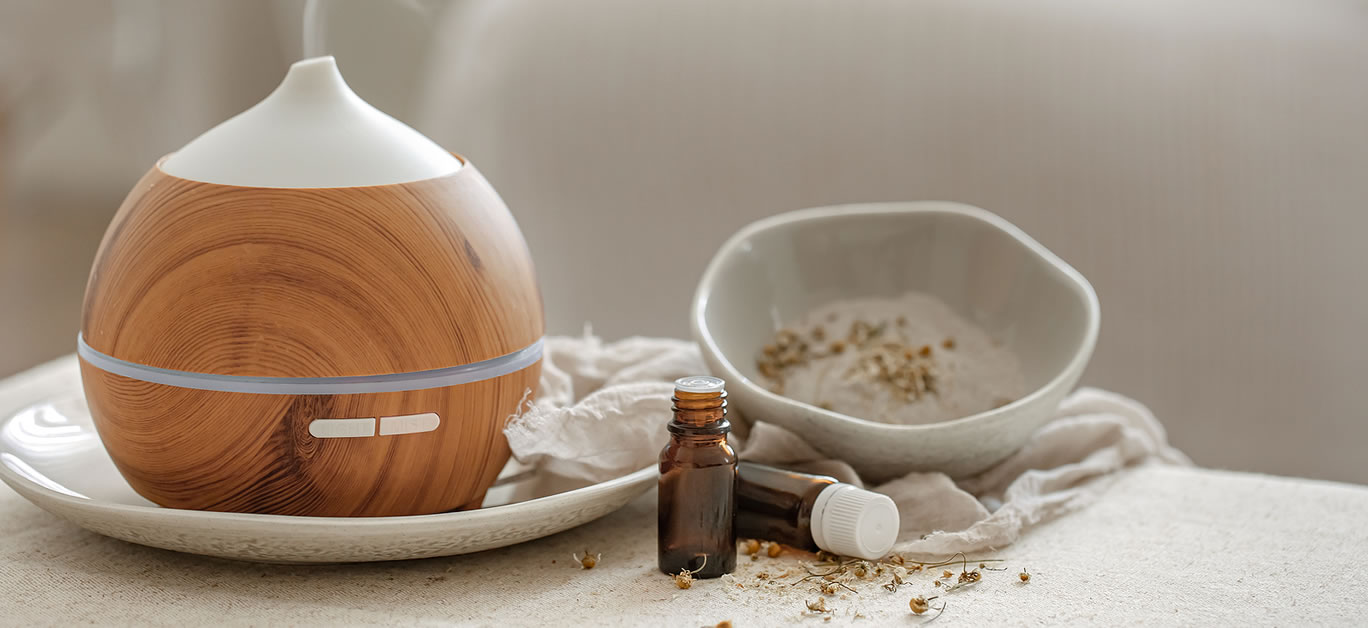Essential oils might be nothing new, in fact they have been part of wellness routines for centuries, but in 2023 their therapeutic benefits are enjoying even greater attention as we continue to place a growing emphasis on the importance of holistic health and wellbeing.
The recent global pandemic shone a spotlight on the importance of looking after ourselves a little better and, for many of us, acts of self care and reaching for natural remedies and treatments for minor ailments and mood issues are behaviours that have stuck.
Essential oils, which are derived from plants, are widely hailed as potent health tonics and have been shown to have a positive impact on physical, mental and even emotional health. And, there are plenty of them to choose from, each offering a host of different benefits – which means whatever your reason for using them, you’ll find one that caters to your needs.
Although they’re often used as part of a variety of different aromatherapy and massage mediums, as well as in some cases, being applied topically, if you’re new to the concept of essential oils or simply aren’t sure where to start with them, then using a reed diffuser is one of the simplest ways to start reaping the benefits.
We’ve put together a guide to the best oils and what they can help you with – from stress and anxiety to headaches and chronic pain, and much more.
10 of the best essential oils for diffuser blends
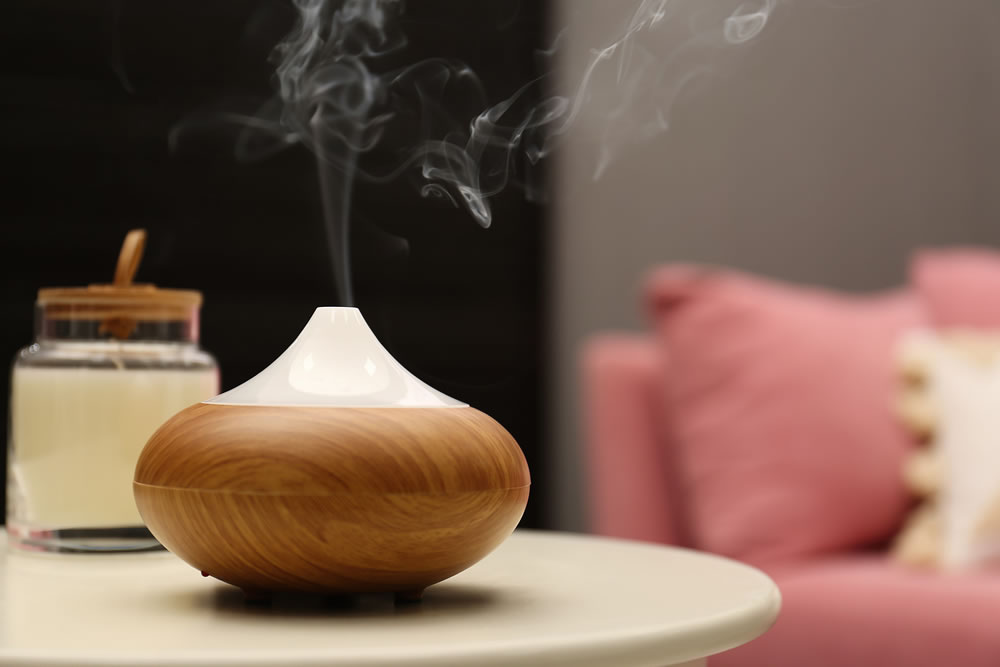
Peppermint essential oil
Peppermint essential oil, with its refreshing and invigorating minty aroma, is known for its ability to help to improve mental clarity, while its delightful cooling effect is also adept at helping to ease and reduce headaches and migraines. It also offers some notable benefits when it comes to respiratory issues, and is often used in a reed diffuser to help ease coughs, colds and congestion.
Peppermint essential oil can be blended with other oils, such as lavender, eucalyptus, and lemon, for a refreshing and energising diffuser blend.
Bergamot essential oil
Bergamot essential oil exudes a citrusy scent with a hint of floral, and is best known for its ability to help ease feelings of stress and anxiety. For that reason, it is often used in aromatherapy to promote relaxation and improve mood, and can be blended with other oils, such as lavender, ylang-ylang, and frankincense, for a calming and uplifting diffuser blend.
Lavender essential oil
Of all the essential oils, lavender is perhaps the most prevalent in aromatherapy, owing largely to the fact that it’s one of the most versatile essential oils available. It has a calming, floral scent that promotes relaxation and improves sleep quality, and like bergamot, can also help to reduce the symptoms of anxiety and depression. Lavender essential oil can be blended with other oils, such as peppermint, lemon, and eucalyptus for a soothing and refreshing diffuser blend.
Eucalyptus essential oil
Eucalyptus essential oil, with its a fresh, camphoraceous scent, is instantly uplifting, and is an excellent choice for clearing the mind and providing a much-needed energy boost during busy or lethargic days. Like peppermint oil, it also promotes improved respiratory health and is often used to alleviate coughs, colds, and sinusitis symptoms. Eucalyptus essential oil can be blended with other oils, such as peppermint, lavender, and lemon, for an invigorating and uplifting diffuser blend.
Lemon essential oil
Looking for an energising essential oil that can help to lift your mood and improve focus? Then look no further than lemon oil, which has a pleasant citrusy scent, just like the fruit. Most commonly used in aromatherapy to reduce stress and anxiety, lemon essential oil goes well with other essential oils, such as lavender, peppermint, and eucalyptus – so if you’re in need of a boost, then pop some of this into your reed diffuser and enjoy.
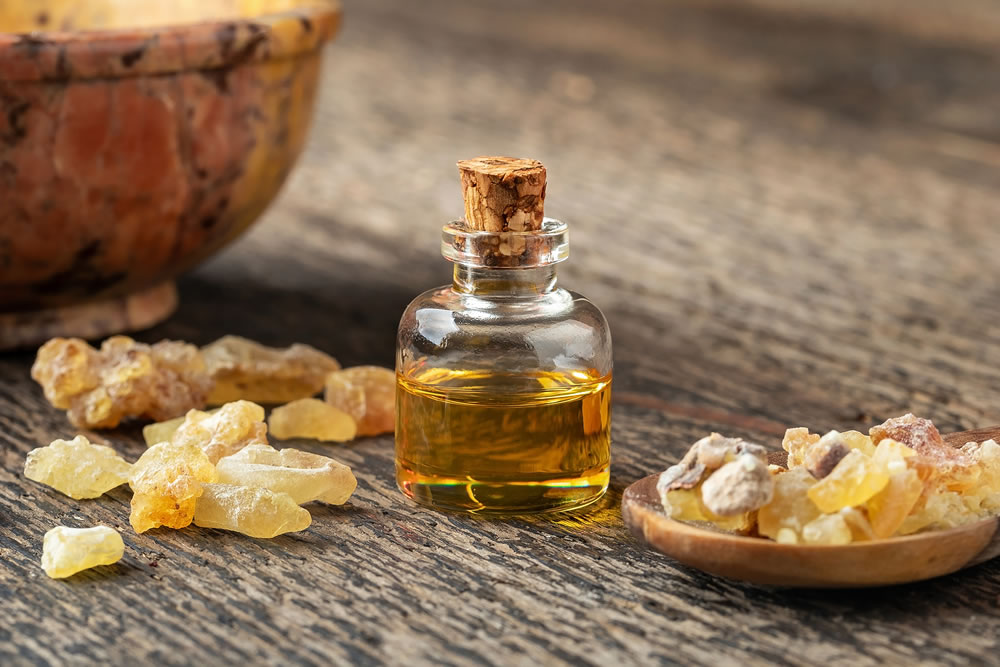
Frankincense essential oil
Frankincense essential oil, with its warm, woody scent, is a go-to for promoting relaxation and reducing stress – which is why it’s a popular choice in aromatherapy for improving mood and also enhancing spiritual awareness. Frankincense essential oil works well with the likes of lavender, bergamot, and ylang-ylang, for a calming and grounding diffuser blend.
Tea tree essential oil
The medicinal scent of tea tree oil might not be the most appealing for some, but it’s actually a potent choice that can help to improve respiratory health and boost the immune system. Another great choice if you’re looking to address the symptoms of a coughs, cold or the flu, mix it with peppermint and eucalyptus oils for a reed diffuser blend that packs a powerful punch.
Rosemary essential oil
Rosemary essential oil is fresh and herbaceous scent and is another one to add to your diffuser blend for enhanced mental clarity and focus. Also often used in aromatherapy to reduce stress and fatigue, rosemary essential oil works well with lavender, lemon, and peppermint, for a refreshing and stimulating diffuser blend – making it a versatile oil that can help you with a range of different issues, depending on what you pair it with.
Ylang-ylang essential oil
Sweet, floral ylang-ylang is relaxing and uplifting, making it a favourite for improving mood and enhancing relaxation without sending you off to sleep – unless, of course, you mix it with lavender oil. Ylang-ylang essential oil can also be blended with bergamot or frankincense, but it smells wonderful on its own and is the go-to catch-all choice for many fans of essential oils.
Cedarwood essential oil
Exuding a warm and woody fragrance that can help to promote relaxation and reduce stress, it’s thought that cedarwood oil can help to improve focus and enhance feelings of tranquillity. Cedarwood essential oil goes best with lavender oil, lemon oil, and frankincense oil, for a calming and grounding diffuser blend.
How to use
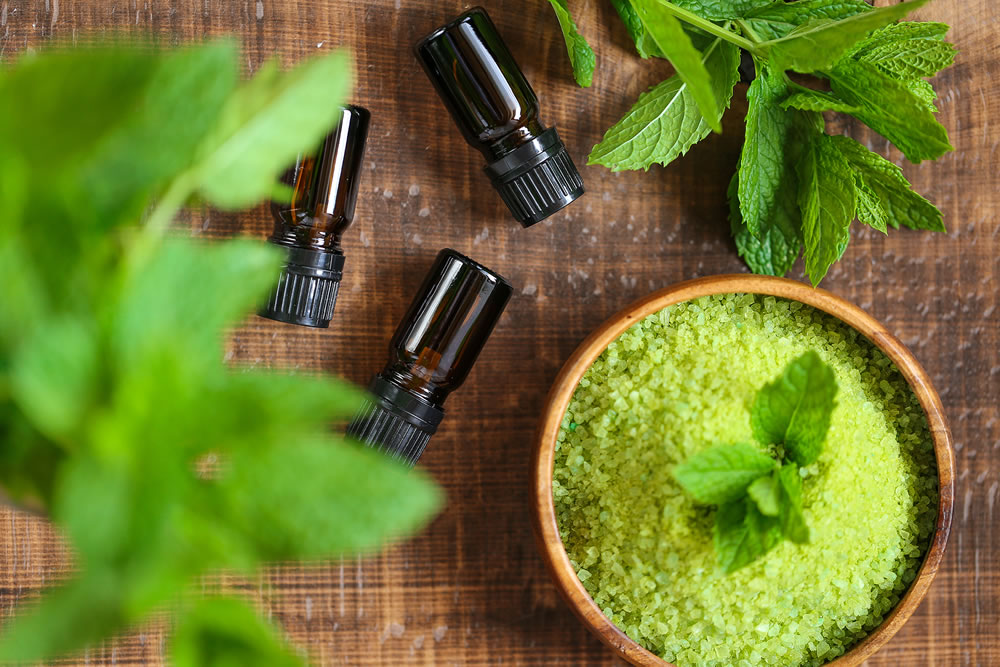
Incorporating essential oils into your lifestyle can be a great way to enhance your mood, promote relaxation, and support your overall health and well-being. Here are some common ways to use essential oils:
Aromatherapy diffuser
One of the most popular ways to use essential oils is in an aromatherapy diffuser. Simply add a few drops of your favourite essential oil or blend to the diffuser, and enjoy the therapeutic benefits as the scent fills the room.
Topical use
Some essential oils can be applied directly to the skin, but diluting them with carrier oils such as coconut or jojoba oil to avoid skin irritation is important. Add a few drops of essential oil to your bathwater for a relaxing soak.
Inhalation
You can inhale essential oils directly from the bottle or by adding a few drops to a cotton ball and breathing in deeply. This method can be particularly helpful for respiratory issues such as congestion or allergies.
Massage
Adding a few drops of essential oil to a carrier oil such as almond or grapeseed oil can create a relaxing and therapeutic massage oil.
Safety and precautions
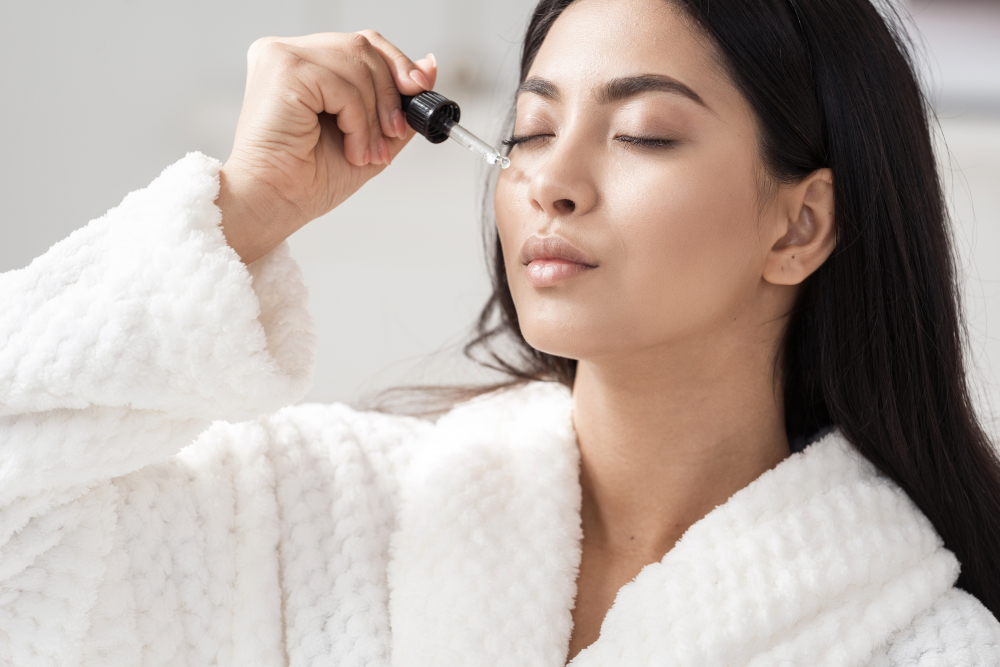
When using essential oils, it’s important to follow a few key safety precautions.
- Dilute your essential oils if you plan to use them topically, as undiluted, they can be too strong and may cause skin irritation or other adverse reactions. It is advised to always dilute essential oils with carrier oils before using to avoid any skin related issues arising.
- Store them responsibly. Essential oils are very beneficial for the skin and when used in aromatherapy, but can be toxic if ingested, so be mindful and keep them away from children and pets.
- Consult a healthcare professional before use if you are pregnant, nursing, or have a medical condition. It’s important to get a professional opinion before using essential oils to make sure it’s safe to proceed.
- Exercise caution around people with respiratory issues. Some essential oils can trigger respiratory problems such as asthma, so take care when diffusing oils around people with these conditions.
- Some essential oils should be avoided or used with caution, such as wintergreen, eucalyptus, and peppermint for young children, and cinnamon and clove for people with sensitive skin.
- Before using a new essential oil, it’s important to test for allergic reactions. Dilute a small amount of the oil in a carrier oil, and apply a small amount to a skin patch. Discontinue the use of essential oils if you experience any redness, itching, or other adverse reactions.
The bottom line
Using essential oils in a diffuser can be a fantastic way to experience their therapeutic benefits. Peppermint, bergamot, lavender, eucalyptus, lemon, frankincense, tea tree, rosemary, ylang-ylang, and cedarwood are some of the best essential oils for diffuser blends. Remember to follow the guidelines while using these oils to create a relaxing and inviting atmosphere in your home or office and prepare to reap the benefits.












